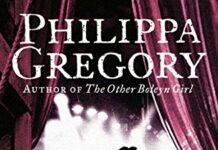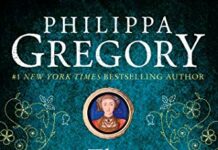
Ebook Info
- Published: 2008
- Number of pages: 529 pages
- Format: Epub
- File Size: 0.46 MB
- Authors: Philippa Gregory
Description
Growing up as an abandoned outcast on the moors, young Alys’ only company is her cruel foster mother, Morach, the local wise woman who is whispered to practice the dark arts. Alys joins a nunnery to escape the poverty and loneliness she has felt all her life, but all too soon her sanctuary is destroyed. King Henry VIII’s followers burn the holy place to the ground, and Alys only just manages to escape with her life, haunted by the screams of her sisters as they burned to death.
She finds work in a castle not far from where she grew up as an old lord’s scribe, where she falls obsessively in love with his son Hugo. But Hugo is already married to a proud woman named Catherine. Driven to desperation by her desire, she summons the most dangerous powers Morach taught her, but quickly the passionate triangle of Alys, Hugo, and Catherine begins to explode, launching them into uncharted sexual waters. The magic Alys has conjured now has a life of its own—a life that is horrifyingly and disastrously out of control.
Is she a witch? Since heresy means the stake, and witchcraft the rope, Alys is in mortal danger, treading a perilous path between her faith and her own power.
User’s Reviews
Philippa Gregory is the author of many New York Times bestselling novels, including The Other Boleyn Girl, and is a recognized authority on women’s history. Many of her works have been adapted for the screen including The Other Boleyn Girl. She graduated from the University of Sussex and received a PhD from the University of Edinburgh, where she is a Regent. She holds honorary degrees from Teesside University and the University of Sussex. She is a fellow of the Universities of Sussex and Cardiff and was awarded the 2016 Harrogate Festival Award for Contribution to Historical Fiction. She is an honorary research fellow at Birkbeck, University of London. She founded Gardens for the Gambia, a charity to dig wells in poor rural schools in The Gambia, and has provided nearly 200 wells. She welcomes visitors to her website PhilippaGregory.com. From Library Journal This new novel by the author of Wideacre (S. & S., 1987) and other popular historical fiction profiles a woman versed in charms, conjuring, and fortune-telling who nonetheless falls into catastrophic misfortunes time after time. Escaping from an English convent, young Alys learns the arts of healing and magic from the “wise woman” who takes her in. Her struggle to find an independent life takes her among an array of characters, including a mediocre lover, a sickly old man still very much in control of the lives around him, and two challenging women: Marach and Mother Hildebrande. Gregory weaves a vivid tapestry of life in the 16th century, including plenty of sex, as the narrative strains toward a not-unexpected end.- M.E. Chitty, Fairchild International Lib. Inst. , Plainfield, N.J.Copyright 1993 Reed Business Information, Inc. –This text refers to the paperback edition. Review Praise for `The Wise Woman’:`Compulsively readable.’Andrea Newman, Sunday Express`Gregory’s principal feat in this elaborate novel is the irrefutable artistry with which she lends her prose a constant sense of history…Success results from the tense, almost shocking contrast between serious issues – religious doctrine, political integrity, social dynamics – and flights of erotic fancy.’Sunday Times`Compelling… Philippa Gregory reigns supreme as the mistress of historical drama.’ Today –This text refers to the paperback edition. From Publishers Weekly The author of the Wideacre trilogy presents a historical romance about a 16th-century English witch. Copyright 1994 Reed Business Information, Inc. –This text refers to the paperback edition. From Kirkus Reviews A spite-spitting, direful tale set in the reign of England’s Henry VIII–and starring a worthy successor to the terrible Beatrice, the murderous prime mover of Gregory’s Wideacre (1987), of the Lacey Trilogy. Here, a fierce young woman, status-climbing, learns poor Anne Boleyn’s lesson about the price of ambition: “Never cross a powerful man.” Young Alys, dreaming, smells the smoke of the burning abbey, but she runs away, leaving her adored Mother Hildebrand to perish- -and returning to the cold, dirty hut of Morach, the local “wise woman” who raised her. Mother Hildebrand had given Alys education, cleanliness, beautiful surroundings–and safety. But Morach, who gave Alys a vocation and a hard dose of truth, declares: “There’s no safety for you or for me…[we] do not accord with the way men want.” When Alys is taken to the castle to heal old Lord Hugh, however, she’s overcome by the lure of riches, the scent of power, and desire–for young Hugh (the one who burnt the nuns to death: abbey-burning was a Tudor sport). Before long, Alys, living comfortably if restlessly at the castle, begs Morach for a bit of magic, and three dolls are fashioned, resembling lords old and young as well as the young Hugh’s unpleasant fat wife, Lady Catherine. Even Morach is not able to forecast the horror to come- -though at one point she will save Lady Catherine from drowning in the moat (from a castle outlook, Alys “started humming…like a swarm of toxic bees”). And who could guess that those little dolls were made for walking? Buoyed by eerie successes, Alys betrays those who loved her to terrible deaths–and climbs upward to the inevitable fall. Told with the dark energy of Wideacre, a fem/lib screw-turn or two, messy magic, and a certain mean glee: a chilly period entertainment. — Copyright ©1993, Kirkus Associates, LP. All rights reserved. –This text refers to the paperback edition. Read more
Reviews from Amazon users, collected at the time the book is getting published on UniedVRG. It can be related to shiping or paper quality instead of the book content:
⭐ I loved her other books, so gave this a try…and now I want those hours back (yes, I held on to the bitter, confusing end). This reads like an author’s experiment: what if I wrote a book where every character was awful without one redeeming quality, threw in some random horror elements, dashed in some hate!porn + plenty of rape, and had the heroine throw her head back, wildly laughing, until the readers feared/cheered the possibility of her neck snapping?That would be this book. Ann/Alys is a sociopath from the get-go and proud of it. And there’s no explanation as to why. There’s little to no reflection (which could have been interesting-is she mad at her assumingly abandoning parents? Mad at herself? At Hugo? The class system? Are the horror components real in the book’s ‘verse, or are they her delusions, or…IDEK). Not one character *stays* in character from beginning to end. The narrative disgust towards female bodies is disturbing, to say the least. Maybe this is just deep third person POV but it was relentless. And to make things a bit worse, frequent word-padding, describing things we already know, re-making the same point multiple times. Lurking in the shadows is the feeling there could have been more, there must have been some interesting backstory, some depths that could have been plumbed, but nope, we get this shallow hot mess.I wish I hadn’t read this but at least I enjoyed the other series first. I can’t imagine reading this first and ever picking up another book by this author.
⭐ What a shocker of a book. Many reviewers here had nothing kind to say about the story of Alys, an orphan girl left on the doorstep of wise woman Morach. Always seeking a better life, Alys goes from Morach to the Abbey and from the Abbey to the castle where she meets her fate.A long-time Gregory fan, I was not expecting THIS: a very unsettling, dark story with no redeeming characters – well, maybe Mother Hildebrande. When Alys succumbed for the first time to the temptation of her powers, I was so angry that I literally threw the book. But I picked it up again and found myself enmeshed in the tale.I’d like to talk to Gregory about “WiseWoman.” I see it as a brave experiment on her part, a cautionary tale about the dangers of straying from … goodness. She has ingeniously used an historical framework to tell Alys’s story, showcasing the inequities, political intrigues, and superstitions of the era while wrenching the reader into an examination of his own beliefs.I would not want to read many books like this. But I am glad I read this one.
⭐ I’m a big fan of Philippe Gregory, having read most of her work.This was so excellent I would give it 6 stars! . I love how the character develops -survival her first instinct. Incredible character journey-following the church first then a man, letting her survival instincts take over when she runs from the burning abbey. We see how hard it was to be a penniless orphan in England.Through the whole book I knew those who burned the abbey would be avenged. I think this is her best book so far, at least on par with the White Queen.This was a wonderful book and I recommend it highly. Loved the ending.
⭐ I kinda like that I’m in the minority here but I love this book. It’s tied together wonderfully and the ending even made me shed a few tears. I can understand why one wouldn’t like it. I also love Wideacre, another novel by her that’s very different. Honestly not so much a fan of the Tudor stuff. I miss the raunchy, raw novels!
⭐ HORRIBLE BOOK, and I am a big fan of the writer. The first few pages start well, but then rapidly goes down hill. None of the main characters have ANY redeeming value, and I was left deeply haunted and depressed by the ending, especially the torture description of the one good character in the book. Also, 99% of it was completely unbelievable with repugnant plotlines. I am still a fan of the writer, but this book was TERRIBLE. I actually threw it in the trash when I was done, and I LOVE books!!! I got the feeling Philippa Gregory either got “lost” half way through and just said “to heck with it!” and abandoned certain plots to make her deadline, or was just getting started as a writer. Either way, it is a book that COULD have been good, and turned out VERY, VERY bad…
⭐ I wasn’t prepared for the considerable suspension of disbelief required to read this novel. About half way through, a startling scene makes it clear that we have left the realms of reality and taken a turn to the fantastical. (Those who have read the book will recognize the moment referred to.) From that point forward, what had been a fairly standard work of historical fiction became a work of fantasy. Just be ready.Gregory does her usual good job creating the world of the 1500’s and I appreciate her efforts at historical realism. Her characters are essentially believeable and human, including Our Heroine, a young nun, Alys, who has fled her convent as it is burned down around her ears by Our Anti-Hero who later becomes the object of her sexual obsession. The underlying theme of the entire work is Alys’s ambitious determination to become the Lady of the Manor, despite not being nobly born and there being a rival already occupying that position. Alys’s skill with healing herbs shortly morphs into perilous experiments with dark magic in order to achieve her aim. She scruples at nothing in performing magical operations to enthrall Our Hero and disadvantage her antagonists. It is a truism that such magical acts most often rebound against the conjurer, as they do here, to her ultimate undoing.I appreciated Gregory bringing the narrative full circle with the final scene mirroring the opening events. The action moves briskly, the dialogue rings true and I remained interested in the plot development throughout. Unlike others, I was not in the least offended by the sexual descriptions which were necessary to advance the plot. Despite the fact that Alys is an unscrupulous, grasping, ruthless protagonist, I was still interested in finding out what happened to her and felt the conclusion to be quite satisfactory. This is not a serious work of historical fiction a la Penman, for example, but not a trashy bodice ripper either. Entertaining, but ultimately silly.
⭐ Warning…if you dont want a detailed review of the book, dont read any further. For starters, remember that this was an early book of the authors and should not be used as a judge for future books. Ive read other books by this author and loved them but this one…if your a person who get emotional about books dont buy it. During most of the book (90% to be honest) i was furious with the heroine and hero. Hes a man whore, shes the dog he pushes around. She watches, and hears him having sex with his wife on one page and on the next shes having sex with him(although what else can a home wrecker expect?) The story is just not believable. He hates his wife, then he wants and loves her? He chases after alys then he forgets her. A lot of weird s&m stuff, a threesome that made me gag, and plenty of rape. Then theres the wax dolls…and the wax miscarriage. Like i said, unbelievable and gross! But mostly gross. If you have never read this author chose another book(they all have man whores though). If you have read everything shes ever written…im sorry. Guess you will just have to wait for a new book with her, hopefully, good writing and plots, like ill have too. Good luck…
⭐ overall I am an avid reader and this kept me turning the pages until late. Phillipa Gregory is one of the bestauthors of romantic history, this presents feminism, witchcraft, romance, authentic facts. LOVED it!
⭐ The Wise Woman / 1-4165-9088-9This is now my fifth Philippa Gregory novel I’ve read, and the fourth I’ve reviewed, and I cannot understand how Gregory can be so radically different with each novel, in terms of prose, technique, and sheer quality. ” The Constant Princess ” was wonderful – crisp, clean prose, with a little bit of didactic dialogue, but it fit Catherine’s character perfectly. ” The Other Boleyn Girl ” was terrible history, but a decent fictional story, even if Gregory did rely a little too heavily on virgin/whore stereotypes, and even if she deliberately reduced her heroine into an idiot in order that everything could be explained to her in dialogue. ” Earthly Joys ” was so painfully boring that I simply could not finish it, and ” The Virgin’s Lover ” was just awful, with characters’ motivations just told to us in hurried prose, rather than shown to us properly in actual actions and dialogues. And now we have “The Wise Woman”.The writing in “The Wise Woman” is simply wonderful. The plot and the characters are so compelling because Gregory skillfully takes every stereotype and shortcut in a writer’s manual, and turns each one on its head. The entire cast of stock characters are here: the Reformed Rapist Lover, the Bitter Barren Wife, the Kind Supportive Old Father, the Cruel Uncaring Hag, the Sweet Understanding Foster Mother. And just when we realize that we’re dealing with historical romance stereotypical characters, and figure that we know the outcome of the story, Gregory chooses that moment to show the ridiculousness of the stereotypes and the reality of her own characters.”The Wise Woman” does not have a happy story to tell. Entitled, rapist nobles do not reform into loving husbands. Bitter, barren wives have good reasons to be bitter. Noble fathers who seem kind to simple peasant girls have very different standards when it comes to marriage eligibility. Evil hags can still contain a kernel of kindness, and the nicest mothers are capable of cutting judgment and prejudice. Because these characters are so real, the plot is unpredictably bleak and shocking. Gregory seems to be asking the reader: Did you really think a lifetime of rape can be washed away by a pretty face? Did you really think that a lifetime of plotting and calculations would be abandoned simply because an old man is fond of a young girl? Did you really expect a happy ending?Refreshingly, our heroine is also allowed to be a real person. She isn’t a Virtuous Heroine, who will win marriage because of her pure heart. She’s not a Schemer, destined for greatness because of her clever political wrangling. And she’s not an Anti-Heroine, determined to tear down her tormentors at the cost of her own life. No, she simply is a real girl, full of the same virtues, vices, hopes, fears, angers, and loves. Gregory doesn’t pass judgment on her character; we’re not expected to see her as greedy for wanting a warm castle over a dirty hovel, and we’re not expected to judge her for her actions, even as she becomes increasingly desperate and spirals into madness. For the characterization alone, I would give “The Wise Woman” five stars, and would point it out as an example of how to do a historical romance right.However, there’s a big caveat to all this before you rush right out to buy this book. There’s a lot of material here that many people will find very objectionable. Of the many graphic sex scenes in this book, they all involve extreme violence, rape, forced drug use, or forced group sex. The scenes are often necessary to propel the plot, but they are certainly disturbing and will turn off a lot of readers. I wasn’t offended by the scenes, but I did feel a little queasy after many of them – this isn’t light reading material.Secondly, Gregory has decided to make magic a real force in “The Wise Woman”, and some of this magic could be disturbing or offensive to some readers. I think, in retrospect, that I would have enjoyed the novel more if there was a possibility that the “magic” was all in the heroine’s mind as an indication of her spiraling insanity. As it is, Gregory makes it pretty clear that the magic our heroine works and suffers from is completely real, and not a hallucination. I would have preferred a little more subtlety.The only other thing that keeps this from being a five-star book is the ending. I don’t have a problem with the ending itself: it’s realistic, it’s cyclical, and it works. But I do have a problem with the way the ending seems rushed and tacked on, as if Gregory had a page limit to maintain and realized, twenty pages from the end, that – oh no! – she needed to wrap this baby up fast. Her careful, foreshadowing prose gets tossed out the window in favor of a dash to the finish line. The result is an ending that seems technically right, but feels horribly wrong.Bottom line: If you are offended by graphic, violent sex scenes and/or graphic, violent magic, you will not enjoy this book. If you are a fan of historical romances and you would like to see some common stereotypes followed through to a dark and subversive conclusion, you may enjoy this book as I did. For all its joys, there are better novels out there, but if you are looking for something unusual and different, this is the Gregory novel for you.~ Ana Mardoll
⭐ I have read almost every book that Philippa Gregory has written and I know that she has dealt with some rather dark themes in some her novels like Wideacre. I am all for authors seeking to plumb the depths of the human psyche, but I am at a loss as to why the author thought this book was worth the effort of writing. I say effort because it seemed to me that Ms. Gregory was trying really hard to complete this text out of obligation rather than for the sheer joy of writing it. Some of the text seemed forced and the plot bordered at times on very bad romantic fiction. Honestly, I barely got half way through the novel, before I got sick of the lead character and her odd voodoo candles.
Keywords
Free Download The Wise Woman: A Novel (Historical Novels) in Epub format
The Wise Woman: A Novel (Historical Novels) Epub Free Download
Download The Wise Woman: A Novel (Historical Novels) 2008 Epub Free
The Wise Woman: A Novel (Historical Novels) 2008 Epub Free Download
Download The Wise Woman: A Novel (Historical Novels) Epub
Free Download Ebook The Wise Woman: A Novel (Historical Novels)





